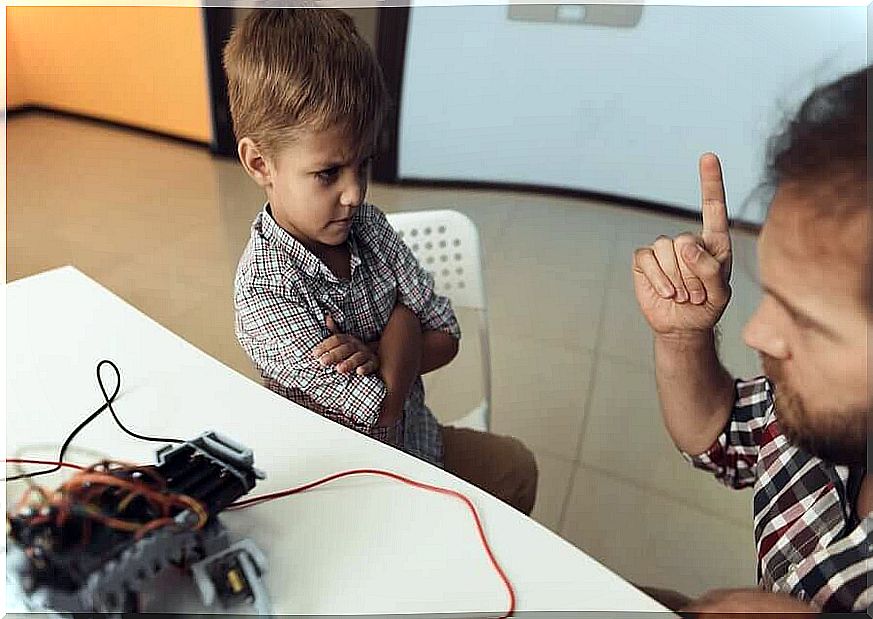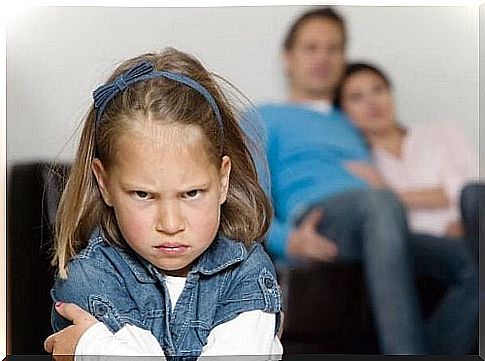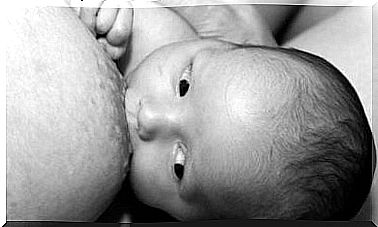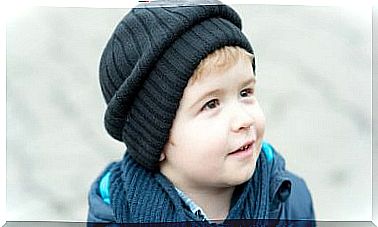When Children Treat Their Parents Badly

Children, with this challenging behavior toward adults, typically present some of the following actions, on different occasions:
- They do not obey or are aware of demands from parents.
- Warnings, threats, and punishment have no effect on changing their unwanted behavior.
- They do not appreciate the actions of their parents, not even kind actions and gifts.
- They seek independence – even for things they are not prepared to do alone – and they refuse help from adults.
- Rebellion, verbal aggression and denial according to showing affection towards the parents.
Like any other form of behavior in children, this problem can have several causes. It depends to a large extent on the child’s character, education and environment. However, if this attitude is directed at just one parent, in particular, it is a sign that the child may harbor negative feelings towards this parent.
This can simply occur because the child prefers the parent he or she spends the most time with. It could also be because the child is angry or offended by something that has happened. Whatever the cause may be, the best thing to do is talk to your child and try to figure out what’s going on.

At the same time, some children are particularly challenging because they have a temper tantrums, are spoiled and tend to respond again. These types of behaviors are, as a rule, the result of social problems, rather than biological ones. There are no children who are “born bad”.
These children engage in some form of psychological violence. They cause harm and suffering to their parents, to place themselves in a position of control. When this problem persists for an extended period of time, it often ends up becoming what is called “Emperor Syndrome”.
Parents need to focus on maintaining their autonomy and exercising it in these situations. Otherwise, the child may reach adolescence in the belief that he or she has power over his or her parents. This can be a very serious problem.
The way parents should respond to this type of behavior should vary according to the child’s age. Below, we will discuss how to deal with this problem in babies, toddlers and older children.
Children under the age of 2 do not understand much of everyday situations. It is best that parents do not force them to do something they do not want to do. This may just end up amplifying the negative behavior.
Instead, try to do the opposite. Ask your child for care, affection, kind words and positive rewards. These will help your child develop a healthy relationship with respect and closeness.
One mistake that many parents make with their children is to argue with those who were the adults. Instead of doing this, it is best to stand by. Of course, you need to do this in a loving way and offer explanations.
That way, over time, the child will understand that everything a parent demands has a cause, and he or she will obey. This is especially true when a child understands that his or her obedience is to his or her own advantage.

In cases where a child has already started school, it may be helpful to evaluate the child’s behavior at school. Furthermore, this environment can help promote a positive behavior that can be transferred to the home.
At this point, children are more aware that their actions have consequences. Therefore, the upbringing techniques that parents make use of at home should emphasize respect for the parents and other authority figures.
At the same time, it is a good time to deepen a child’s emotional education. A particularly important value, here, is empathy. Children should learn to recognize that their words and actions can hurt others. This includes the people they love – even their parents.
Without a doubt, when children are disrespectful to their parents, it is important that parents reinforce their authority. But, that does not mean you have to be authoritative or impose punishment, and, even less, violence. Instead, give your child the daily education and affection that all children need and deserve.









